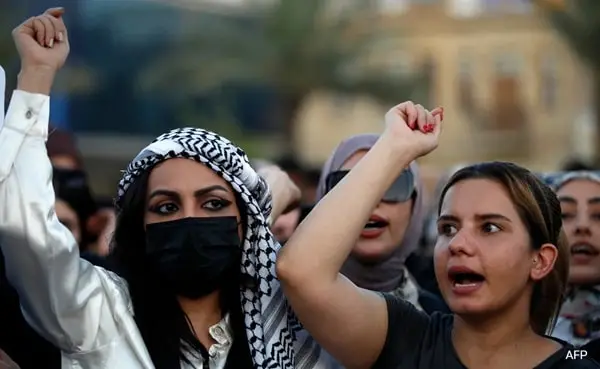In recent weeks, Iraq has become the center of a heated debate over a proposed amendment that could allow girls as young as nine to marry under specific interpretations of Islamic law. This change seeks to replace certain elements of the current Personal Status Law of 1959, a secular framework that has historically set 18 as the minimum marriage age, with allowances for marriages from 15 with parental or judicial approval. However, the proposed amendment would fundamentally shift these standards, potentially creating avenues for child marriages under Shia Islamic jurisprudence, where the age of marriage for girls could be as low as nine, contingent on “physical maturity” (The Week, Ms. Magazine).
Why is the Proposal Being Pushed?
The bill is supported by Iraq’s Coordination Framework, a coalition dominated by Shia factions that have gained substantial political power in recent years. Proponents argue that the amendment respects religious freedom by allowing citizens to follow personal religious interpretations regarding family and marriage. Raad al-Maliki, the independent legislator behind the amendment, defends it as a means for Iraqi Muslims to align family laws with their faith, insisting that it would not lead to forced or abusive child marriages. Critics, however, argue that the amendment masks a conservative agenda aimed at restricting women’s rights and reinforcing patriarchal norms (The Guardian, Al Jazeera).
Widespread Criticism and Public Outcry
The proposed law has faced significant opposition from women’s rights advocates, legal scholars, and international organizations, who argue that lowering the marriage age poses a severe threat to the rights and well-being of young girls. Human rights groups, including Human Rights Watch and Amnesty International, have warned that the law would effectively legalize child marriage, leading to harmful consequences for girls, including increased risks of health complications, interrupted education, and limited future economic opportunities. Activists highlight that the bill’s implications could extend beyond marriage laws, potentially undermining protections related to divorce and child custody, thereby limiting women’s autonomy within marriage and family settings (Ms. Magazine, Al Jazeera).
Implications for Iraq’s Secular Legal Tradition
This proposal challenges the secular foundation of Iraq’s legal system, which has been in place since 1959 and was established with the goal of promoting a unified, non-sectarian approach to family law. A shift toward sect-specific legal interpretations could fragment the nation’s legal framework, creating different family law standards for various religious groups and setting a precedent for further sectarian policies. By allowing religious doctrines to dictate the age of marriage, opponents fear a return to traditionalist rules that may open the door to a broader rollback of women’s rights across Iraq (The Week).
International and Local Backlash
International and local reactions have been swift. Women’s rights groups have mobilized protests, with demonstrations in Baghdad and other cities. Activists, such as Coalition 188, argue that this proposal effectively “steals the future” from young girls, forcing them into early marriages and violating international conventions Iraq has ratified, like the Convention on the Rights of the Child (CRC) and the Convention on the Elimination of All Forms of Discrimination against Women (CEDAW) (Middle East Eye, Ms. Magazine).
Furthermore, Iraqi legislators and activists have expressed concerns that the amendment reflects a broader societal regression, with women’s rights and gender equality becoming increasingly marginalized within the country’s political discourse. Ruba Al Hassani, a legal sociologist, warned that this shift could even affect inheritance laws, custody battles, and women’s property rights, further undermining gender equality and social progress (The National).
What’s Next for the Bill?
The Iraqi parliament has already conducted an initial reading of the proposed law, with more discussions expected in the near future. While advocates of women’s rights are campaigning tirelessly to prevent its passage, the amendment’s success would signal a substantial step back for women’s and children’s rights in Iraq. As parliamentary debates continue, global observers and human rights organizations closely monitor developments, urging Iraqi lawmakers to reject the amendment in favor of protecting the rights and welfare of Iraqi girls and women (Ms. Magazine, Al Jazeera).
Conclusion: A Crossroads for Women’s Rights in Iraq
Iraq’s proposed amendment on marriage age exemplifies the ongoing struggle between religious conservatism and progressive values within the country. If enacted, it would mark a significant shift toward religious-based governance in personal matters, challenging Iraq’s secular legal framework and potentially setting a troubling precedent for the rights of women and children. The debate highlights the delicate balance between cultural, religious values and universal human rights, raising important questions about the future of women’s rights and legal protections in Iraq. For now, activists, international bodies, and a portion of Iraq’s political leaders continue to advocate against the proposal, aiming to preserve the rights and protections established over decades.
This issue represents a pivotal moment for Iraq, one that could either uphold or diminish the hard-won rights of its female citizens in the years to come.


